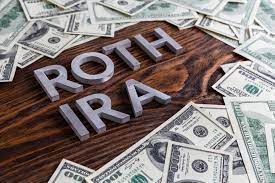What is a 401k?
The 401(k) plan takes its name from the US internal revenue code’s 401(k) subsection. The 401(k) is an employer-sponsored pension saving account with defined contributions involved. Contributions into a 401(k) plan is directly deducted from an employee’s paycheck. However, there are two classifications of 401(k). These include; the traditional 401(k) and the Roth 401(k) plan. These two options vary on the associated tax benefits.
Traditional 401k
In a traditional 401(k), contributions are made before income has been taxed. This means the employer sets aside the funds for investment into various options before deducting the income tax. The funds invested in an employee’s 401(k) plan benefit from growth on a tax-deferred basis. However, upon the employee’s retirement, they start receiving distributions at age 59.5 years. Unlike in the Roth 401(k), the distributions in this plan are taxed according to the current income tax rate.
ROTH 401k
For a Roth account, contributions do not impact income tax. Donations into a Roth IRA are made after deducting the income tax. This allows the beneficially to enjoy a tax-free growth of the investment. In this plan, the distribution is also tax-free. This means the benefits you receive during retirement will not be taxed on the condition that the contributions have been made for not less than five years and the beneficially has attained the age of 59.5 years. However, the contribution limits for the Roth 401(k) are significantly lower than the traditional 401(k).
IRA
A typical IRA is an individual retirement account into which you can put money earned before taxes. This means the deposits to a traditional IRA are made before your earnings are deducted from any taxes, unlike a Roth IRA account. This allows the investment to grow tax differed. However, when you retire, tax is paid on withdrawals based on the current income tax.
Roth IRA

A Roth IRA deduction is made after your earnings income tax has been paid. This means the money deposited into this account is not tax-deductible. Hence, your investment grows tax differed. You should also note that Roth account withdrawals are not liable for taxes as in a traditional IRA account. However, the account needs to have been active for five years. You also need to have reached the age of 59.5 when making the withdrawals.
What is The Difference?
If you’re saving for retirement, an Individual Retirement Account (IRA) is a better option than a 401(k). The rules for withdrawing money are also different. There could be a 10% penalty and taxes due if you withdraw funds from either account before the age of 59.5 years.
Eligibility
To be eligible to make an IRA contribution, you must have received revenue during the current tax year. Earned income includes earnings, salaries, bonuses, and income from self-employment. Such as dividends, interest, and rent. Benefits from investments, Social Security, unemployment insurance, allowances, and pensions are not included. But there are income limits for Roth IRAs, as well.
A 401(k) contribution is only possible if your company provides one. It is up to the employer to define the parameters of their pension plan on paper. Generally, if an employee is over the age of 21 and has worked for the company for at least a year, the employer must allow them to join in the retirement plan.
Plan Limits
If you’re under the age of 50, you can make an IRA contribution of only $6,000 in each of the years 2021 and 2022. There is a $1,000 catch-up contribution available to taxpayers age 50 and older per tax year. IRAs, whether standard or Roth, are subject to the same limitations.
Earned income is limited to that amount for the year. Workers under the age of 50 can contribute up to $20,500 to their 401(k)s in 2022, an increase of $1,000 from the previous year. In 2022, workers over the age of 50 will be able to make a $6,500 catch-up payment. Neither the employee nor the employer may contribute more than $61,000 in 2022.
Other Considerations
It’s far easier to change your mind about your retirement savings with an IRA than with a 401(k). To start an Individual Retirement Account, you can do it at any financial institution. It’s up to your brokerage firm to provide you with a wide range of mutual funds, ETFs, individual stocks, and bonds to invest in.
In order to put money into a 401(k), you must do so through your place of employment. It is up to the firm you work for to select an administrator to oversee your account. You have a much smaller range of investment possibilities.
I hope this article was helpful and that you found it interesting. If you have any questions, we will be more than happy to answer them below.
All the best,
Pete
